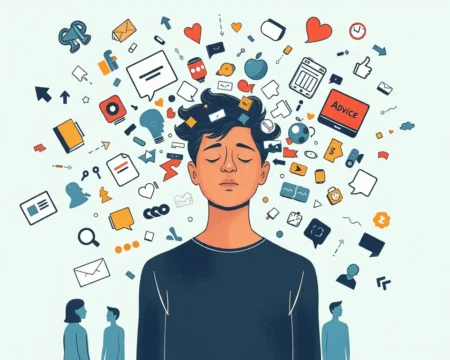Supreme Court Justice Mike Chibita has recently emphasized the critical importance of mental health and personal growth for prosecutors in Uganda. This call highlights a growing recognition of the demanding nature of the prosecutorial role and the need for a more comprehensive approach to justice that includes the well-being of those who uphold it.
Why Mental Health Matters for Prosecutors
The role of a prosecutor is undeniably stressful. They are tasked with:
- High Workload: Prosecutors often handle a large number of cases simultaneously, leading to long hours and immense pressure to manage their workload effectively.
- Emotional Toll: Dealing with crime scenes, victims, and difficult defendants can take a significant emotional toll. Exposure to traumatic details and human suffering can lead to burnout, compassion fatigue, and secondary trauma.
- Ethical Dilemmas: Prosecutors frequently face complex ethical dilemmas that require careful consideration and can cause significant stress. Balancing justice, fairness, and the pursuit of truth is not always straightforward.
- Public Scrutiny: Prosecutors operate in the public eye, and their decisions are often subject to intense scrutiny from the media, the public, and various stakeholders. This can lead to added stress and pressure to perform flawlessly.
- Limited Resources: In many jurisdictions, prosecutors face limited resources, including inadequate staffing, funding, and technology, which can hinder their ability to effectively perform their duties and contribute to increased stress levels.
Ignoring the mental health of prosecutors can have serious consequences, affecting not only their personal well-being but also the integrity and effectiveness of the justice system. Some of the potential impacts include:
- Burnout and Reduced Performance: Stressed and mentally exhausted prosecutors may experience burnout, leading to decreased productivity, poor decision-making, and a higher risk of errors.
- Impaired Judgment: Mental health issues can impair judgment and objectivity, potentially leading to unfair or biased outcomes in legal proceedings.
- Increased Turnover: The demanding nature of the job, coupled with inadequate support for mental health, can contribute to high turnover rates among prosecutors, resulting in a loss of experience and expertise within the justice system.
- Substance Abuse and Other Coping Mechanisms: Some prosecutors may turn to unhealthy coping mechanisms, such as substance abuse, to deal with the stress and pressure of their jobs, leading to further personal and professional problems.
- Erosion of Public Trust: If prosecutors are perceived as being stressed, overwhelmed, or lacking in empathy, it can erode public trust in the justice system as a whole.
Justice Chibita’s Message: A Holistic Approach
Justice Chibita’s call for prioritizing mental health and personal growth suggests a shift towards a more holistic approach to justice. This perspective recognizes that prosecutors are not simply legal professionals but also human beings with their own needs and challenges. By addressing these needs, the justice system can foster a healthier, more resilient, and ultimately more effective prosecutorial workforce.
The specific recommendations or initiatives Justice Chibita may have proposed are not detailed in the available search results. However, based on best practices and general principles of well-being, some potential strategies for promoting mental health and personal growth among prosecutors include:
- Access to Mental Health Services: Providing confidential access to counseling, therapy, and other mental health services can help prosecutors address stress, trauma, and other mental health concerns.
- Stress Management Training: Equipping prosecutors with stress management techniques, such as mindfulness, meditation, and relaxation exercises, can help them cope with the demands of their jobs.
- Work-Life Balance Initiatives: Encouraging work-life balance through flexible work arrangements, generous leave policies, and support for family responsibilities can reduce burnout and improve overall well-being.
- Peer Support Programs: Creating opportunities for prosecutors to connect with and support one another can foster a sense of community and reduce feelings of isolation.
- Training on Trauma-Informed Practices: Educating prosecutors about the impact of trauma on victims, defendants, and themselves can promote empathy, understanding, and more effective approaches to justice.
- Leadership Support: Encouraging leaders within the prosecutorial system to prioritize mental health and well-being can create a culture of support and reduce stigma associated with seeking help.
- Opportunities for Professional Development: Providing opportunities for prosecutors to enhance their skills, knowledge, and career prospects can boost morale, increase job satisfaction, and promote personal growth.
- Mentorship Programs: Pairing experienced prosecutors with newer colleagues can provide guidance, support, and encouragement, helping them navigate the challenges of the job and develop their full potential.
The Role of Personal Growth
In addition to mental health, Justice Chibita also emphasized the importance of personal growth for prosecutors. This aspect focuses on the continuous development of skills, knowledge, and character, enabling prosecutors to become more effective advocates for justice.
Personal growth can encompass a variety of areas, including:
- Continuing Legal Education: Staying up-to-date on the latest legal developments, trends, and best practices is essential for prosecutors to effectively represent the state and uphold the law.
- Skill Development: Enhancing skills such as communication, negotiation, critical thinking, and problem-solving can improve a prosecutor’s ability to investigate cases, present evidence, and argue persuasively in court.
- Ethical Development: Reflecting on ethical principles and values, and seeking guidance on complex ethical dilemmas, can help prosecutors maintain the highest standards of integrity and professionalism.
- Leadership Training: Developing leadership skills can enable prosecutors to effectively manage teams, mentor colleagues, and contribute to positive change within the justice system.
- Community Engagement: Participating in community outreach programs and engaging with diverse perspectives can broaden a prosecutor’s understanding of the social issues that contribute to crime and inform more effective approaches to prevention and intervention.
Benefits of Prioritizing Well-being
Prioritizing mental health and personal growth among prosecutors offers numerous benefits for the individual, the justice system, and the community as a whole. These include:
- Improved Job Performance: Mentally healthy and engaged prosecutors are more likely to be productive, effective, and fair in their decision-making.
- Reduced Stress and Burnout: Addressing mental health concerns and promoting work-life balance can reduce stress, burnout, and turnover among prosecutors.
- Enhanced Ethical Conduct: Supporting ethical development and providing guidance on ethical dilemmas can promote integrity and prevent misconduct.
- Increased Public Trust: When prosecutors are seen as being fair, compassionate, and committed to justice, it can increase public trust in the legal system.
- Better Outcomes for Victims and Defendants: Trauma-informed practices and a greater understanding of social issues can lead to more just and equitable outcomes for both victims and defendants.
- A More Resilient Justice System: By investing in the well-being of its prosecutors, the justice system can become more resilient, adaptable, and capable of meeting the challenges of a changing world.
- Reduced Corruption: Focusing on personal growth, and integrity building can reduce corruption among prosecutors.
- Improved Prosecution Services: The focus on re-skilling and re-tooling prosecutors leads to better delivery of prosecution services.
Conclusion
Justice Chibita’s message is a timely reminder that the well-being of prosecutors is not simply a personal matter but a critical component of a fair and effective justice system. By prioritizing mental health and personal growth, Uganda can foster a prosecutorial workforce that is not only competent and ethical but also resilient, compassionate, and committed to serving the community with integrity. This holistic approach to justice promises to benefit individuals, the legal system, and society as a whole.










